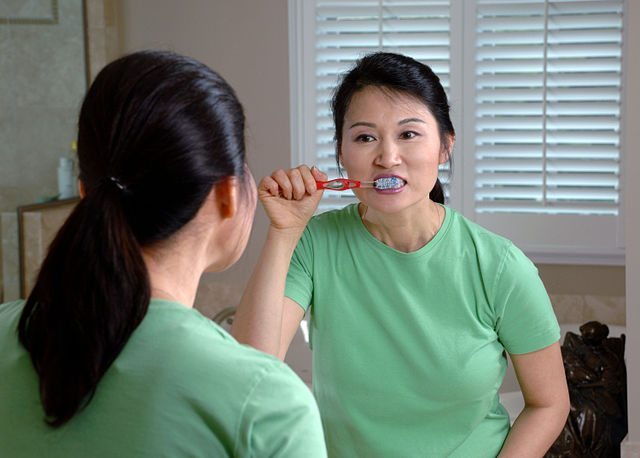Beating Bad Breath

Dental health not only is good for teeth, but also for your breath. When people have bad breath, also known as halitosis, it can make even the most mundane encounters difficult in your personal and professional life. Often bad breath is a sign of poor oral hygiene and other routine life choices, including diet. Read on to see how Portland, Oregon dentist Dr. Todd L. Beck can help you figure what is causing your bad breath and how to effectively treat it.
The Beast of Bacteria
When we eat, small particles of food get trapped in our mouths and bacteria gathers on them. This bacteria can cause odors when it grows and feeds around your teeth, gum, and tongue. Not keeping retainers or dentures properly clean can also lead to foul smells, as those same bacteria grow and smell. Nowadays, there are plenty of antibacterial mouthwashes available to help combat bacteria in the mouth. Rot and decay can also cause your breath to smell, and even old teeth restorations or fillings can be the culprits. Additionally, other factors, such as using tobacco, can lead to halitosis.
It Can Lead To Other Issues…
When bad breath becomes a frequent or ongoing problem, it could be a sign of periodontitis, or gum disease. When plaque forms on the teeth, the bacteria can get so bad that it can enflame and irritate the gums and mouth. Left untreated, this can lead to damage of your jaw and even result in inflammation in the rest of the your body.
Cleansing Saliva
A lack of saliva can also cause bad breath. A condition known as xerostomia, or dry mouth syndrome, can be an offender as well. In a well-working mouth, saliva keeps your mouth damp, and cleans it by flushing away bacteria and by neutralizing acids that plaque buildup can cause. When a mouth is too dry, the offending cells are not cleaned out, and that can cause rot and bad breathe.
Watch What You Eat
Your diet can also affect your breath. Once food is consumed, it enters the bloodstream and then passes out through your lungs with each breath. Extreme diets, like those involving fasting or the Atkins type lower-carb options, can also result in halitosis. Better options for cleaner breath are making sure to eat lots of fresh fruit and veggies that have high water content and help generate saliva. Of course, avoiding garlic and onions doesn’t hurt as well!
How To Help
So what can we do to help alleviate the problems of bad breath? Well, a visit to your dentist every six months is highly recommended, as they can help clean the plaque and bacteria off your teeth that might be causing the offending odor. Antibacterial or antiseptic mouth rinses can also help keep any bad breath bacteria at bay. Keeping to a healthy oral hygiene regimen is also a great way to avoid bad breath. This means brushing twice a day and making sure to pay attention to how you brush as well as how long you brush. If you are not sure if you are brushing properly, the hygienists at South Waterfront Dental can help instruct you on your next visit.
